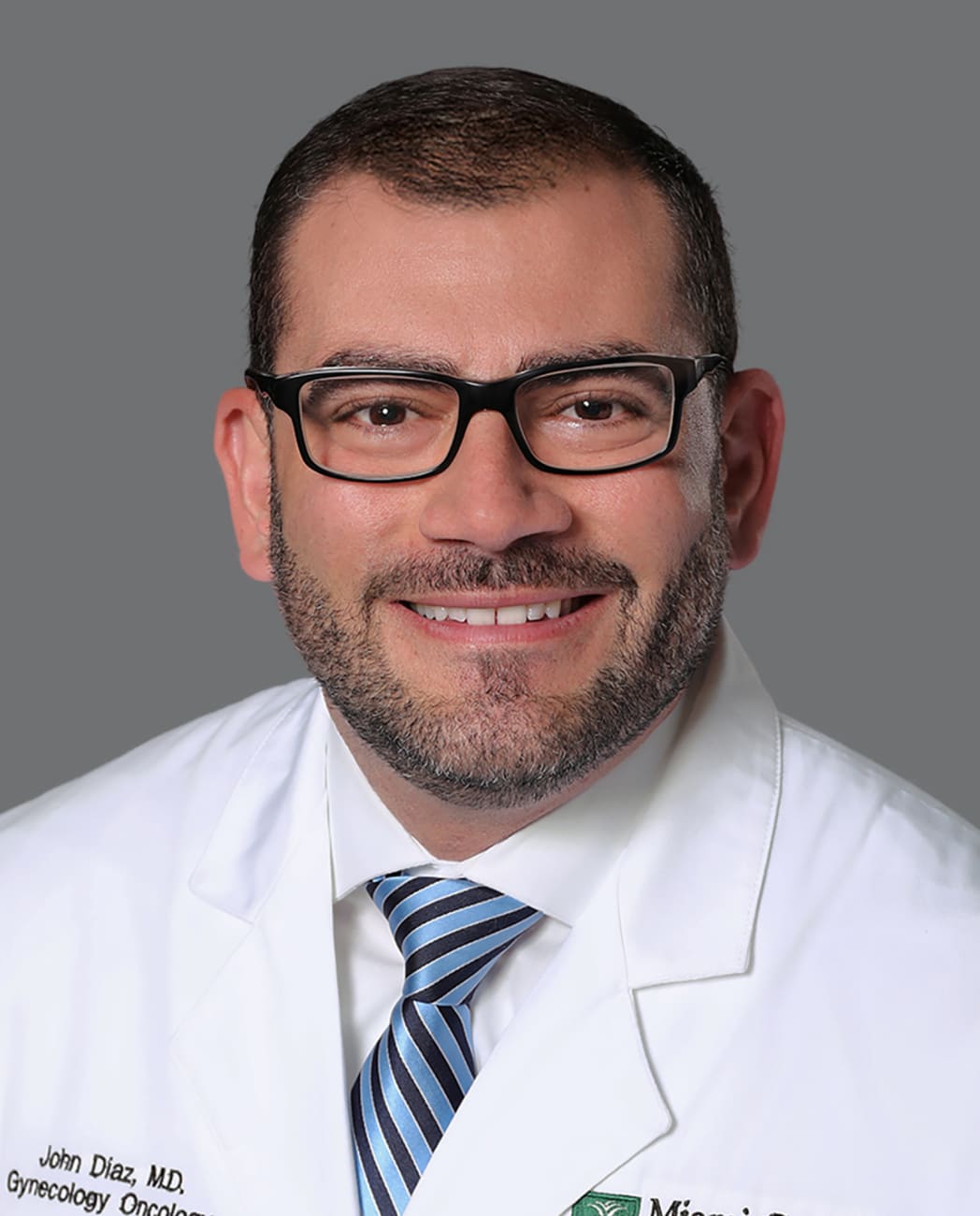

Endometrial cancer, also known as uterine cancer, is the sixth most common cancer among women worldwide and the most common type of gynecologic cancer in the U.S. It affects the endometrium, or lining of the uterus, and can spread to other areas if left untreated. More than 66,000 cases are expected to be diagnosed this year, according to the National Cancer Institute (NCI), and roughly 20 percent of them will prove fatal.

John Paul Diaz, M.D., chief of gynecologic oncology at Baptist Health Miami Cancer Institute
With new advances in the treatment of the disease, however, women today are experiencing better outcomes, says John Paul Diaz, M.D., chief of gynecologic oncology at Baptist Health Miami Cancer Institute. One such advance has been the subject of a global phase 3 study in which Dr. Diaz served as institutional principal investigator. The results of the study, “Dostarlimab for Primary Advanced or Recurrent Endometrial Cancer,” were published recently in the New England Journal of Medicine.
In the double-blind, randomized, placebo-controlled trial study of patients with advanced or recurrent endometrial cancer, some patients received dostarlimab, an immunosuppressant, in addition to standard-of-care chemotherapy, (a combination of carboplatin plus paclitaxel). The study revealed that the combination of chemotherapy and immunotherapy may have synergistic effects in the treatment of endometrial cancer, Dr. Diaz says.
“The key takeaway from this trial is that we saw a statistically and clinically meaningful improvement in progression-free survival (PFS), with a doubling of the PFS at 24 months compared to chemotherapy alone,” says Dr. Diaz. “This also was the first trial to demonstrate an improvement in PFS with the addition of immunotherapy to standard-of-care chemotherapy in patients with advanced disease.”
Understanding your risks
Dr. Diaz says that diagnoses of endometrial cancer in the U.S. have increased over the years. According to the NCI, however, some women are at higher risk for the disease, especially those who:
- Take estrogen-only hormone replacement therapy (HRT) after menopause
- Take tamoxifen to prevent or treat breast cancer
- Are obese
- Have metabolic syndrome
- Have type 2 diabetes
- Exposure of endometrial tissue to estrogen made by the body (which may be caused by never giving birth, menstruating at an early age or starting menopause at a later age)
- Have polycystic ovarian syndrome
- Have a family history of endometrial cancer in a first-degree relative (mother, sister or daughter)
- Have certain genetic conditions, such as Lynch syndrome.
- Have endometrial hyperplasia
Recognizing the symptoms
There is no screening for endometrial cancer, says Dr. Diaz, but because most patients present with abnormal bleeding, this cancer is usually diagnosed at an early stage.
“Endometrial cancer is actually the most curable of all gynecologic cancers but you have to recognize its symptoms,” says Dr. Diaz. “Endometrial cancer begins inside the uterus so it is not usually detected unless the patient experiences symptoms, Dr. Diaz says. “These can include vaginal bleeding or discharge not related to your period; vaginal bleeding after menopause; difficult or painful urination; pain during sexual intercourse, or pain in the pelvic area.”
If you experience any of these symptoms, Dr. Diaz urges you to see your doctor as soon as possible. “The sooner we know if it’s cancer, the sooner we can start treating it, and that almost always leads to better outcomes,” he says. “And as the dostarlimab study has shown, there is reason for great optimism for anyone diagnosed today with endometrial cancer.”

